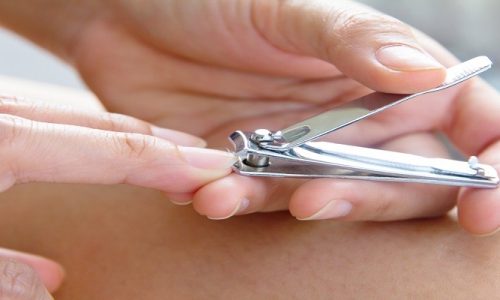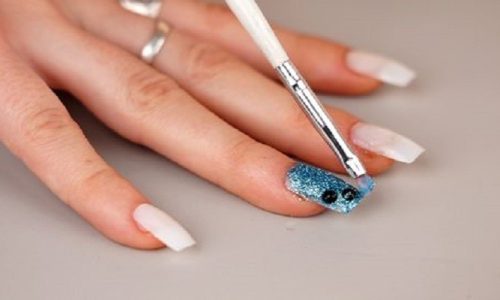The nail salon industry in the United States is a multi-billion dollar business, with a significant portion owned and operated by Vietnamese Americans. The phenomenon of Vietnamese dominance in this industry is a remarkable story of resilience, hard work, and entrepreneurial spirit.
Origins: From Refugee Camps to Nail Salons
The roots of the Vietnamese nail salon industry can be traced back to the aftermath of the Vietnam War. In 1975, after the fall of Saigon, thousands of Vietnamese refugees fled their homeland and resettled in various parts of the United States. Among them were 20 women who found themselves at a refugee camp in Northern California, where they met actress Tippi Hedren.
Hedren, known for her role in Alfred Hitchcock’s classic film “The Birds,” was working as a relief coordinator at the camp. Noticing the women’s admiration for her well-manicured nails, she had the idea to teach them the art of manicuring. With the help of her personal manicurist, Dusty Coots, Hedren provided free classes to these women, equipping them with a valuable skill that would become their pathway to financial independence and success.
The Rise of Vietnamese Nail Salons
From those humble beginnings, the Vietnamese nail salon industry flourished. The women who learned the trade from Hedren went on to open their own salons, offering affordable services that made manicures and pedicures accessible to a wider range of customers. Their hard work, attention to detail, and commitment to customer service quickly earned them a reputation for excellence.
As word spread within the tight-knit Vietnamese American communities, more and more women became interested in pursuing careers in the nail industry. They saw it as an opportunity to achieve financial stability and provide for their families, while also preserving their cultural heritage and traditions.
Affordable Luxury and Cultural Fusion
One of the key factors that contributed to the success of Vietnamese nail salons was their ability to offer high-quality services at affordable prices. By undercutting the rates of more upscale salons, they made manicures and pedicures accessible to a broader clientele, including working-class women and those from diverse ethnic backgrounds.
This accessibility, combined with the exceptional service provided by Vietnamese nail technicians, led to a cultural fusion that transcended racial and socioeconomic boundaries. Vietnamese nail salons became gathering places where women from all walks of life could come together, share stories, and bond over the simple pleasure of getting their nails done.
Entrepreneurial Spirit and Family Businesses
Another hallmark of the Vietnamese nail salon industry is the strong entrepreneurial spirit that drives many of its owners. For many Vietnamese immigrants, owning a nail salon represented the American dream – the opportunity to be their own boss, build a successful business, and provide a better life for their families.
These family-owned and operated businesses often relied on the collective efforts of multiple generations, with grandparents, parents, and children all contributing to the salon’s success. This close-knit approach not only strengthened family bonds but also fostered a sense of community and support within the industry itself.
Challenges and Resilience
Despite their remarkable success, Vietnamese nail salon owners and technicians have faced numerous challenges along the way. Language barriers, cultural differences, and the physical demands of the job have all presented obstacles that required resilience and determination to overcome.
Additionally, concerns have been raised about the potential health risks associated with prolonged exposure to the chemicals used in nail products. However, many salons have taken proactive steps to address these concerns, implementing safety measures and offering more eco-friendly options to their customers.
Looking Ahead: Passing the Torch
As the Vietnamese nail salon industry continues to thrive, a new generation of entrepreneurs and technicians is emerging. Many children of the original nail salon owners have chosen to carry on the family legacy, bringing fresh ideas and innovations to the industry while honoring the traditions and values instilled by their parents and grandparents.
Furthermore, the success of Vietnamese nail salons has inspired other immigrant communities to explore entrepreneurial opportunities in the beauty industry, further diversifying and enriching the landscape of nail salons across the United States.
Conclusion
The story of Vietnamese nail salons in the United States is a testament to the power of resilience, hard work, and the pursuit of the American dream. From humble beginnings in a refugee camp, these businesses have grown into a multi-billion dollar industry, providing employment opportunities and financial stability for countless families.
Beyond their economic impact, Vietnamese nail salons have also played a significant role in fostering cultural exchange and breaking down barriers between communities. They serve as gathering places where people from diverse backgrounds can come together, share stories, and celebrate the simple joys of self-care and personal expression.As the industry continues to evolve, the legacy of the Vietnamese nail salon pioneers will endure, inspiring future generations to embrace their entrepreneurial spirit and pursue their dreams with unwavering determination.
FAQs
What is the history of nail salons in the US?
Nail salons in the US have evolved significantly since the early 20th century. Initially, nail care was a luxury service offered in high-end beauty salons. The industry saw substantial growth in the 1970s with the introduction of acrylic nails, which became a popular trend. The 1980s and 1990s witnessed the proliferation of specialized nail salons, making nail care more accessible and affordable. Today, the industry is diverse, offering a wide range of services from basic manicures to intricate nail art, and it continues to grow with innovations in nail technology and products.
What are the benefits of gel nails?
Gel nails offer several benefits, including durability and longevity, as they can last up to three weeks without chipping or peeling. They dry quickly under UV or LED lamps, reducing the risk of smudging. Gel nails also provide a high-gloss finish that remains vibrant throughout the wear period. Additionally, they cause less damage to natural nails compared to traditional acrylics when applied and removed correctly. Gel nails are versatile, allowing for a wide range of designs and artistic expressions.
How to start a nail salon business?
Starting a nail salon business involves several key steps. First, conduct market research to understand the demand and competition in your area. Develop a comprehensive business plan outlining your services, pricing, and financial projections. Choose a suitable business structure and register your business, obtaining the necessary licenses and permits. Acquire high-quality equipment and supplies, and design an inviting salon space. Implement effective marketing strategies to attract customers and build a strong online presence. Finally, ensure compliance with health and safety regulations to provide a safe environment for clients and staff.
How to create a business plan for a nail salon?
Creating a business plan for a nail salon involves several essential components. Start with an executive summary that outlines your business concept, goals, and unique selling points. Include a company overview detailing your business structure, location, and ownership. Conduct market and competitor analysis to understand your target audience and competitive landscape. Define your service offerings and pricing strategy. Develop a marketing plan to attract and retain customers. Outline your operational plan, including staffing and daily operations. Finally, create a financial plan with projections for revenue, expenses, and profitability.
What are the legal requirements for opening a nail salon?
Opening a nail salon requires meeting several legal requirements. First, obtain a business license and register your business with the appropriate state and local authorities. Acquire a cosmetology license, which typically involves completing a certified program and passing practical exams. Ensure your salon space meets health and safety standards by obtaining a Certificate of Occupancy from local building inspection services. If you plan to sell retail products, secure a retail seller permit. Additionally, obtain general liability insurance to protect against potential claims and damages. Compliance with these legal requirements is crucial for operating a legitimate and successful nail salon.







